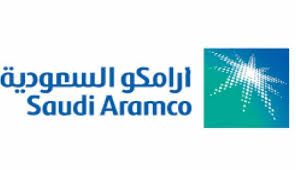
The face of Saudi Arabia changed for ever on 3 March 1938 when oil was found at Dharam. Earlier, the country was largely nomadic with a small tourism industry because of pilgrimages to Mecca.
The full scale of the oil reserves in the country took some time to become known. But things slowly started to get clearer following the end of the second world war when people realized that the oil reserves beneath the sands of the deserts in the country could be easily brought out. One of the key components of the world economy’s long post-war boom was cheap Saudi oil. The country used revenue generated from oil to construct roads, bridges, apartment blocks and western-style living standards.
However, there were some negatives. Oil became the backbone of the economy of Saudi Arabia and accounted for about 87 per cent of the budget revenues of the country, over 40 per cent of the GDP and 90 per cent of export revenues.
The Saudi rulers kept taxes low and welfare spending high and kept on investing in infrastructure development when the global price of crude was more than $100 a barrel. The petro dollars also allowed Saudi Arabia to spend heavily on defence and get as powerful as Iran. The commissioning of the Jeddah tower, which would be the tallest building in the world when it is inaugurated next year, was done at a time when the global crude oil price was $120 a barrel.
But two things have been troubling the Saudi economy. The first was the drastic fall in the price of crude to below $40 a barrel in 2014 and the prices have not yet completely recovered. The second was a rising awareness among global population, governments and policy makers to reduce greenhouse gas emissions.
“Thirty years from now, there will be a huge amount of oil – and no buyers”, former Saudi energy minister Sheikh Ahmed Zaki Yamani said. “Oil will be left in the ground. The stone age came to an end, not because we had a lack of stones, and the oil age will come to an end not because we have a lack of oil.”
Following the realization of its dependency on oil, the Saudi leadership planned to diversify the Saudi economy for the long-term through what it calls the Saudi Vision 2030 program.
And a very important part of that plan is the proposed sale of a part of the state-owned oil company - Saudi Aramco. The proposed IPO would be the largest ever in history and the money fetched from the IPO would be used for transformation and modernization of the country’s economy.
But the postponement of the IPO for Saudi Aramco float could be less related to the current condition of the financial markets and more related to the fact that the Saudi government does not want to disclose yet the condition of the company and the extent of oil reserves. The Saudi government has however reiterated its commitment to go ahead with the floating of a part of Saudi Aramco.
(Source:www.theguardian.com)
The full scale of the oil reserves in the country took some time to become known. But things slowly started to get clearer following the end of the second world war when people realized that the oil reserves beneath the sands of the deserts in the country could be easily brought out. One of the key components of the world economy’s long post-war boom was cheap Saudi oil. The country used revenue generated from oil to construct roads, bridges, apartment blocks and western-style living standards.
However, there were some negatives. Oil became the backbone of the economy of Saudi Arabia and accounted for about 87 per cent of the budget revenues of the country, over 40 per cent of the GDP and 90 per cent of export revenues.
The Saudi rulers kept taxes low and welfare spending high and kept on investing in infrastructure development when the global price of crude was more than $100 a barrel. The petro dollars also allowed Saudi Arabia to spend heavily on defence and get as powerful as Iran. The commissioning of the Jeddah tower, which would be the tallest building in the world when it is inaugurated next year, was done at a time when the global crude oil price was $120 a barrel.
But two things have been troubling the Saudi economy. The first was the drastic fall in the price of crude to below $40 a barrel in 2014 and the prices have not yet completely recovered. The second was a rising awareness among global population, governments and policy makers to reduce greenhouse gas emissions.
“Thirty years from now, there will be a huge amount of oil – and no buyers”, former Saudi energy minister Sheikh Ahmed Zaki Yamani said. “Oil will be left in the ground. The stone age came to an end, not because we had a lack of stones, and the oil age will come to an end not because we have a lack of oil.”
Following the realization of its dependency on oil, the Saudi leadership planned to diversify the Saudi economy for the long-term through what it calls the Saudi Vision 2030 program.
And a very important part of that plan is the proposed sale of a part of the state-owned oil company - Saudi Aramco. The proposed IPO would be the largest ever in history and the money fetched from the IPO would be used for transformation and modernization of the country’s economy.
But the postponement of the IPO for Saudi Aramco float could be less related to the current condition of the financial markets and more related to the fact that the Saudi government does not want to disclose yet the condition of the company and the extent of oil reserves. The Saudi government has however reiterated its commitment to go ahead with the floating of a part of Saudi Aramco.
(Source:www.theguardian.com)





